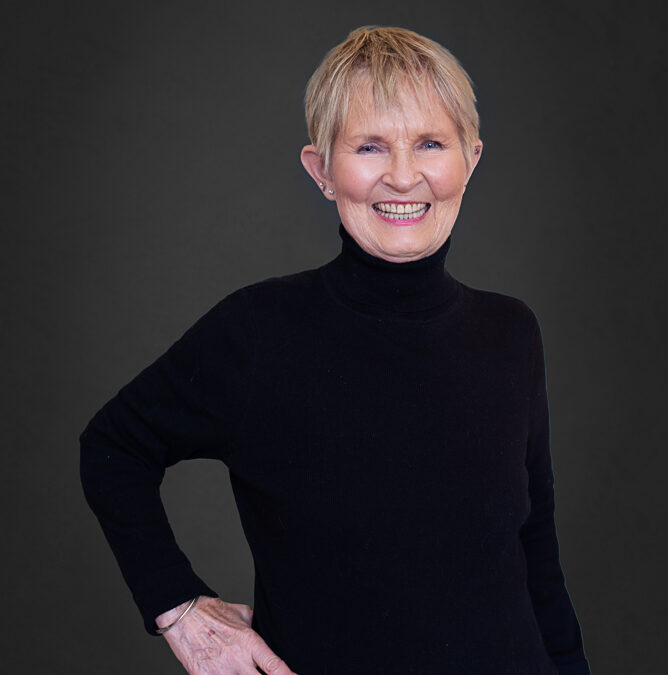Many of us have become very aware of the messages our culture sends us about what it means to be an older woman. Do you see it? Feel it? We have funny and not-so-funny stories about what we’ve seen or read, how we’ve been treated, or what someone has said to us. Let’s talk about How Cultural Messages Affect Women Over 50.
Subtle Energy
Not too long ago I was in a doctor’s office asking about the pain I sometimes feel in my lower legs. He suggested I choose a walking route that includes places I can sit down every once in a while. The previous summer I rode my bicycle from San Francisco to Los Angeles—I did not want to be told to sit down every so often! But that’s how he saw me: as an older woman who needed to take it easy. I didn’t want to take it easy. I was looking for help living my active life the way I want to, for as long as I can.
There are more subtle messages we get from other people, even friends. Frequently people are shocked to discover I’m still working. After the “You’re still working?!” exclamation, comes the “Why don’t you retire?” The people who ask this just can’t understand that I don’t want to retire. I love what I do, and I want to keep doing it. This is not their fault. It’s what they’ve been programmed to expect: you hit a certain age, traditionally 65, and you retire.
Changing World
That was then. This is now, and that’s not the world we live in any longer. More and more people are realizing that at 55 or 65, they’re just getting going! This is especially true for women who, with their kids out of the house [EM1], may be freer to do what they want with their time than ever before. And with advances in nutrition, exercise, and health care, many women in their fifties can expect to live another 20, 30, 40, or more productive years. Not everyone, of course, but more and more, this is the case.
Some of the women I coach say they don’t think they’re particularly affected by what they hear from the media and from other people. I’m always really glad to hear that, and then we talk about it a bit more. We talk about the “funny” birthday cards they may have received about getting older. The number of times they’ve heard others say, “Well, that was a senior moment.” The mailings they suddenly started getting when they turned a certain age, and what the organization sending the literature was telling them about their new stage of life.
Ageism simply is not on the radar yet compared to some other “isms.” I know it affects both women and men, but I think it affects women more insidiously and starts sooner—I’d say for women it’s around age 48 to 50—because so much of our society values women largely for their looks and sexiness.
What Can You Do?
So, what can you do to make yourself more immune to the impact these constant messages can have? The first step is to become even more aware of them than you already are. Be alert for the roles older women play on TV and in the movies. Pay attention to ads in magazines. Don’t buy denigrating birthday cards even though they may seem funny initially.
Call people on things they say that reflect a negative bias toward older women. For some time now many women have stopped ignoring sexist comments. It’s time to do the same with “ageist” comments. People may be surprised when you speak up—and, out of discomfort, they may make fun of you—but that’s okay. Maybe they’ve learned something.
If you participate in community activities or continuing education, don’t only sign up for “classes for seniors.” Join mixed-age classes some of the time. Make sure you’re making and keeping friendships with younger women. In addition to having fun, you may be acting as a role model for them, showing what’s possible as they get older.
And finally, think of some of the positives of getting older. No, it’s not all positive. There are usually some physical changes that aren’t terrific. But think of some of the things that are good. Many older women find it’s no longer necessary to constantly prove themselves. There’s much more a sense of “this is who I am”—and who cares if that’s not who society says we should be?
Cultural messages with a negative impact on older women are out there, but you don’t have to listen to or amplify them. Be a voice for empowerment, rather than ageism.
Learn More…
The Prime Spark Membership Community is designed for women 50 (or close) and older to support one another. We learn and grow together while furthering the mission of Prime Spark. Membership currently is closed. If you’re interested in joining, please send an email to [email protected] and ask to be placed on the waitlist.
To learn more about Prime Spark, go to www.primesparkwomen.com.


Thank you Sara for amplifying a topic that has yet to emerge in the way it should. I’m in my early 50’s and it’s easy in corporate America to feel like a “ has been”. Your comment that we are just getting started is so true!
I’m finally stepping into my calling confidently and boldly. Thank you again for being such a huge inspiration to me and so many others.
Thank you, Lisa! We are all in this together!!